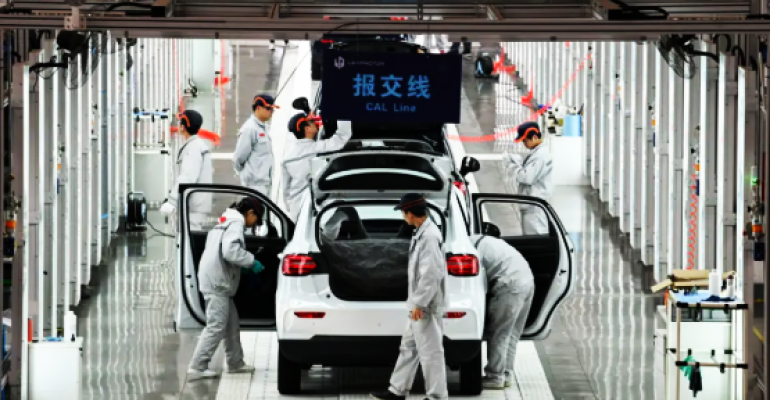In addition to routine anxiety over profits and profitability, executives also are worrying about politics, deployment of artificial intelligence and restless customers, according to the AlixPartners 2024 Disruption Index survey.
Overall, some 3,100 executives answering the business consultancy’s fifth annual survey say they are more confident – the index dropped from a high of 79 in 2022 to 72 this year – in their teams and the overall direction of their company across a range of topics.
“The worst of the post-pandemic volatility and uncertainty are behind us. However, longer-term, fundamental disruptions to how we work and live – from the warming planet, to graying populations, to a fracturing world order, to the hyper-fast development of AI – are all reaching tipping points,” according to a summary of the findings, which charted the responses from executives in a half-dozen different industries, facing diverse challenges.
AlixPartners defines disruption as “the displacement of businesses, markets and value networks as a result of economic, societal, environmental, political, regulatory or technological changes.”
Focusing on automotive, the report says the industry “is in a complex and deliberate transformation unlike anything it has experienced in over a century.”
The global growth of electric-vehicle sales affects the supply base, manufacturing and service – the entire value chain, the survey says, noting EV margins are not as strong as profits from internal-combustion-engine vehicles, and EV-related investments are costly.
Another highly disruptive trend is the advent of software-defined vehicles, which demand a total revision of the car’s architecture and new partnerships capable of providing consumers with the “next-level in-car experience.
“Automotive executives must be prudent in both the timing and scope of investment, seeking to provide game-changing innovations and pricing models while staying in step with customer demand,” the survey finds.
“A template for how to thrive in today’s industry is on display in China. Chinese companies have been successful in not only boosting EV penetration, but some are also competitively pricing semi-automated driving and other tech-forward features,” Alix Partners observes.
 “Although disruptions like the chip shortage may be behind the auto industry, that certainly doesn’t mean life is getting any easier” for car companies and those who run them, says Mark Wakefield (pictured, left), global co-leader of the automotive and industrial practice at AlixPartners.
“Although disruptions like the chip shortage may be behind the auto industry, that certainly doesn’t mean life is getting any easier” for car companies and those who run them, says Mark Wakefield (pictured, left), global co-leader of the automotive and industrial practice at AlixPartners.
“From the massive technical and development process changes coming with software-defined vehicles to the recent uncertainty regarding electric-vehicle sales growth, companies need to understand the shifting environment and act decisively,” Wakefield adds.
The Alix Partners report notes the overall global economy has outperformed many of the direst predictions over the past year, slowing but still showing remarkable resilience: “While both the European and Chinese economies have weakened, the United States’ has grown fast. In the third quarter, real U.S. GDP growth came in at a 4.9% annual rate, driven by strong hiring, wage growth and consumer spending.”
This resilience is reflected in business confidence. In the survey, 70% of CEOs express optimism about the future of their business in the face of slowing economic conditions, and 84% expect positive revenue growth for their company over the next 12 months (up 10 points year-over-year). However, 54% of CEOs expect their national economy to continue in or enter a recession within the next six months.





